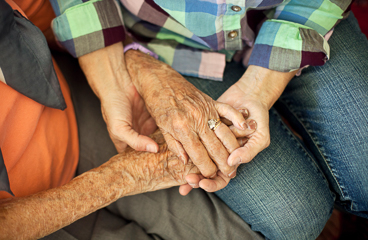
What are hospice and palliative care?
Palliative (say "PAL-lee-uh-tiv") care is an area of medicine that helps give you care for quality-of-life issues. It includes treating symptoms like pain, nausea, or sleep problems. It can also include helping you and your family and friends to:
- Understand your illness better.
- Talk more openly about your feelings.
- Decide what treatments you want or don't want.
- Communicate better with your doctors, nurses, and each other.
Hospice care is a type of palliative care. But it's for people who are near the end of life.
What kinds of care are involved?
Palliative care: This treatment helps you feel better physically, emotionally, and spiritually while doctors also treat your illness. Your care may include pain relief, counseling, or nutrition advice.
Hospice care: Again, the goal of this type of care is to help you feel better. And it can help you get the most out of the time you have left. But you no longer get treatment to try to cure your illness.
When does care happen?
Palliative care: This care can happen at any time during a serious illness. You don't have to be near death to get this care.
Hospice care: In most cases, you can choose hospice care when your doctor believes that you have no more than about 6 months to live.
Where does the care happen?
Palliative care: This care often happens in hospitals or long-term care facilities like nursing homes. It can take place wherever you are treated, even in your home.
Hospice care: Most hospice care is done in the place the patient calls "home." This is often the person's home. But it could also be a place like a nursing home or retirement center. Hospice care may also be given in hospice centers, hospitals, and other places.
Who provides the care?
Palliative care: There are doctors and nurses who specialize in this field. But your own doctor may also give some of this care. And there are many other experts who may help you. These include social workers, counselors, therapists, and nutrition experts.
Hospice care: In hospitals, hospice centers, and other facilities, care is given by doctors, nurses, and others who are trained in hospice care. In the home, a family member is often the main caregiver. But the family member gets help from care experts. They are on call 24 hours a day.
Where can you learn more?
Go to http://www.healthwise.net/patientEd
Enter D515 in the search box to learn more about "Learning About Hospice and Palliative Care".
Current as of: March 1, 2024
Author: Ignite Healthwise, LLC Staff
Clinical Review Board
All Ignite Healthwise, LLC education is reviewed by a team that includes physicians, nurses, advanced practitioners, registered dieticians, and other healthcare professionals.

